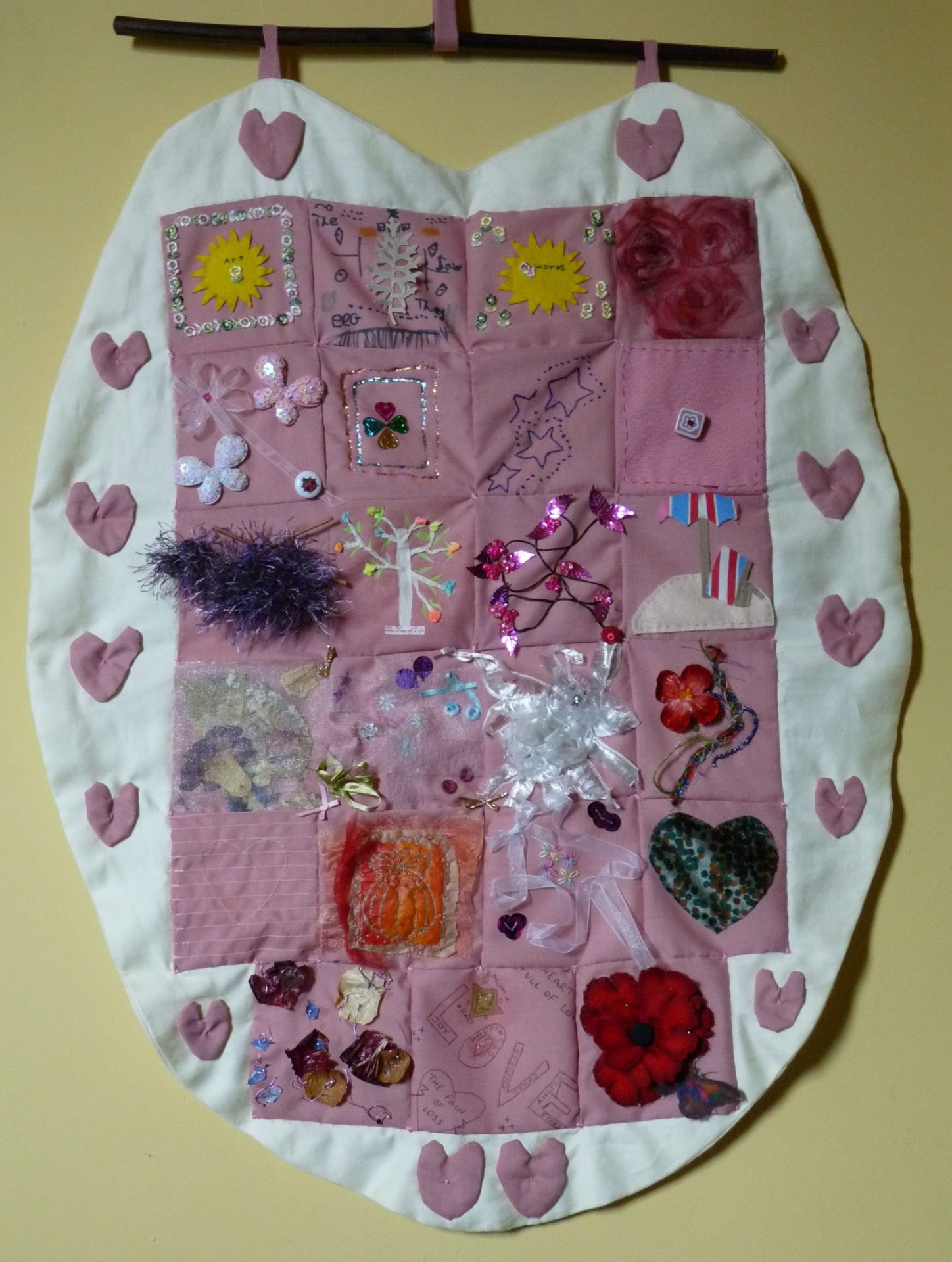Collaborative Heart Patchwork
Contributors include – patients, a Brooklea GP, the surgery receptionist, a son, mother and two daughters, both the resident artist and poet and a visiting artist.
Final stitching together and composition by Suaad.
Arts in Medical Education
I am a patient who started to attend ‘Art for Health’ and ‘Writing for Health after receiving a full year’s sick note following a year of lurching from one short-term sick note to another! These courses are not formally prescribed, nor are they officially ‘therapy’. Yet for me, and all those who have been lucky enough to be able to join the sessions, they are a very real life-line. Not only have they improved the quality of our lives but also they have actually reduced the extent to which we need to visit the doctor(s).
Despite so much that has been achieved in and by modern medicine, there are many conditions that doctors are unable to cure or even alleviate. Helping trainee doctors to recognise this and realise that, coming to terms with their own limitations as physicians can immeasurably help such patients. We all need to be recognised as human beings, regardless of untreatable conditions, the limitations these impose on our lives and the inability of our doctors to actually help.
Sadly I have encountered doctors who, whilst very good in general, appear to be embarassed by their limitations. This gives them a tendency to acquire a professionally self-protective attitude that fosters avoidance of recognising or acknowledging to the patient concerned, the reality of their life. Frustratingly for modern doctors, these patients, like myself, form an increasing number of those attending GP practices. Without an awareness of this incorporated into their training there is a very real risk that newly trained doctors will lapse into avoidance of acknowledging their own limitations, to the detriment of the patients concerned. It does not have to be like that.
The Art for Health and Writing for Health sessions implemented by insightful GPs at my own practice are a wonderful example of the alternatives that can be achieved. Implementing this insightfulness as part of medical student training can only be beneficial to all their future patients. Thanks to my GPs’ insight I am now very much not only ‘in my head’, but in control of my life. I no longer need the anti-depressants that I used to rely on to blank out the ongoing battle with physical limitations. The inclusion of insightfulness like this into medical student training should be an essential part of the curriculum for all medical schools. On the basis of my experience I have no doubt that investing in preparing students for the reality that their patients live with is likely to reduce the extent to which doctors have to support those patients they cannot actually cure or even help much.
by Suaad

0 Comments